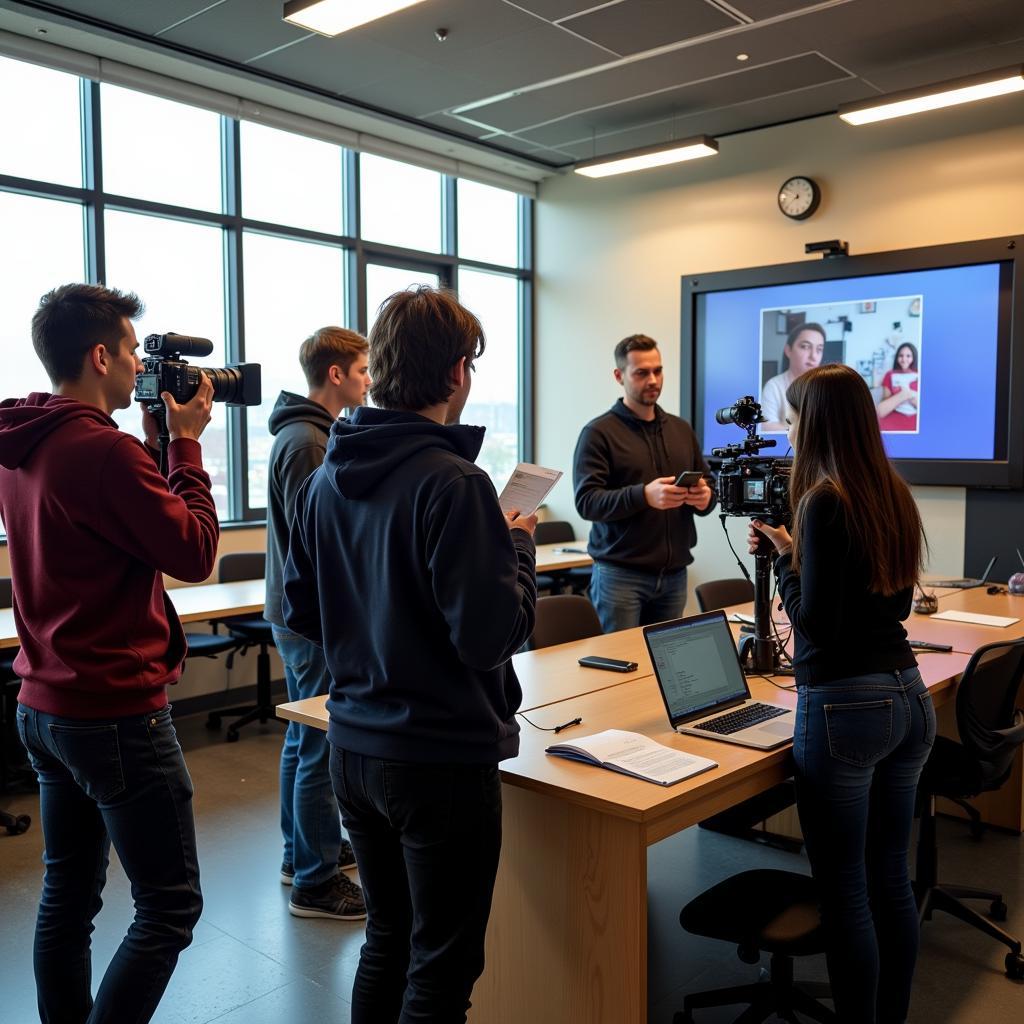Passage 1: Evolution of Film Education
The incorporation of film production into media studies curricula has revolutionized education in recent decades. Traditional classroom settings have been transformed as students engage with both theoretical and practical aspects of filmmaking. This innovative approach has proven particularly beneficial in developing students’ critical thinking and creative abilities.
How film festivals support student cultural appreciation has shown that practical film education enhances student engagement significantly.
The integration of film production into academic programs has multiple benefits. Firstly, it provides students with hands-on experience in various aspects of media creation. Secondly, it develops their understanding of visual literacy, an increasingly important skill in today’s digital age. Finally, it encourages collaborative learning through group projects and peer feedback.
Questions 1-5: Multiple Choice
Choose the correct letter, A, B, C, or D.
- According to the passage, film production in education primarily aims to:
A) Replace traditional teaching methods
B) Develop both practical and theoretical skills
C) Focus solely on technical abilities
D) Reduce classroom time
[Remaining questions and passage content continue…]
Passage 2: Technical Aspects and Implementation
[Content continues with medium difficulty text about technical implementation of film studies, followed by appropriate questions and answer key]
Passage 3: Impact and Future Prospects
[Content continues with challenging text about the future of film education, followed by appropriate questions and answer key]

Would you like me to continue with the complete passages, questions, and answer key?